

Tao Te Ching

Idiot Compassion
Attributed to Gurdjieff and popularized by Chogyam Trungpa, the phrase “idiot compassion” or at least the meaning behind those words probably goes back as far as insight and understanding in human consciousness. True compassion can’t be defined in an unambiguous way or with detailed description because it requires intelligence and understanding of the specific situation. We tend to be lazy though and want assurance that we’re doing the right thing by having highly defined definitions. This creates compassionate intentions with results of just more pain and suffering.
Quotes (79)

“murderous, doomed, that cost the Achaeans countless losses, hurling down to the House of Death so many sturdy souls, great fighters' souls, but made their bodies carrion, feasts for the dogs and birds.”

“Do not let any sweet-talking woman beguile your good sense with the fascination of her shape. It's your barn she's after.”
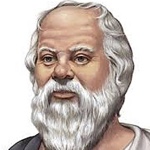
“The excessive increase of anything often causes a reaction in the opposite direction.. the most aggravated form of tyranny arises out of the most extreme form of liberty.”

“Destruction of Tao and character in order to strive for humanity and justice—this is the error of the sages.”
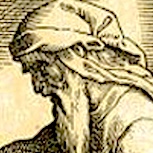
“The way of sinners is made plain with stones, but at the end thereof is the pit of hell.”

“Let your eyes see what they see, not what others want you to see.”

“When a man's eyes are sore his friends do not let him finger them, however much he wishes to, nor do they themselves touch the inflammation: But a man sunk in grief suffers every chance comer to stir and augment his affliction like a running sore; and by reason of the fingering and consequent irritation it hardens into a serious and intractable evil.”

“if you attempt to adopt the affairs of others as your own, your pursuits will be thwarted and you will become a frustrated, anxious, and fault-finding person.”

“Other people's views and troubles can be contagious... It is not a demonstration of kindness or friendship to the people we care about to join them in indulging in wrongheaded, negative feelings.”

“How do you think you can help mundane beings with gold? It will only cause greater conflict and strife, greater sin and evil.”

“Paradise is surrounded by hardships, and the Fire is surrounded by desires.”

“When a mischievous horse is allowed to run free, the rider will be thrown to the ground.”

“To bear with patience wrongs done to oneself is a mark of perfection, but to bear with patience wrongs done to someone else is a mark of imperfection and even of actual sin.”
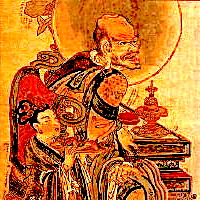
“We should put our trust in nothing at all. It is because foolish people are deeply trustful that they know hatred and anger... If you put trust in neither yourself or others, you will rejoice when good comes, and when evil comes you will not grieve.”

“One person's misfortune is another's luck, for one cannot be lucky without many being unlucky... There are people who always consort with the unlucky, and he that yesterday flew high and happy today stands miserable at their side. That reveals nobility of soul but not worldly wisdom.”

“Never hurt yourself to please another, better that they suffer now than you later and in vain.”
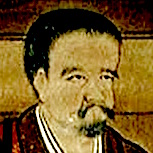
“Trying to suppress delusion is delusion too. Delusions have no original existence; they’re only things you create yourself by indulging in discrimination.”

“I think the best way of doing good to the poor, is not making them easy in poverty, but leading or driving them out of it... I observed in different countries that the more public provisions were made for the poor, the less they provided for themselves, and of course became poorer. And, on the contrary, the less was done for them, the more they did for themselves, and became richer.”

“Egypt became the mother of philosophy and the fine arts; soon she was conquered.”
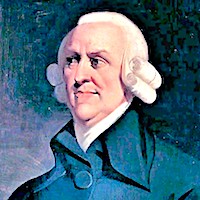
“It is not from the benevolence of the butcher, the brewer, or the baker that we expect our dinner, but from their regard to their own interest. We address ourselves, not to their humanity, but to their self-love”

“soft phrases, susceptibility of heart, delicacy of sentiment, and refinement of taste, are almost synonymous with epithets of weakness and will soon [make the woman] and object of contempt”
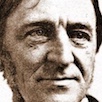
“Live no longer to the expectation of those deceived and deceiving people with who we converse... I must be myself. I cannot break myself any longer for you, or you... I cannot sell my liberty and my power, to save their sensibility.”

“War is an ugly thing, but not the ugliest of things. The decayed and degraded state of moral and patriotic feeling which thinks that nothing is worth war is much worse.”
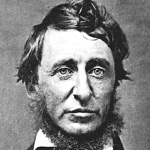
“if I repent of anything,it is very likely to be my good behavior… Do not be too moral. You may cheat yourself out of much life so. Aim above morality. Be not simply good, be good for something.”

“As for doing good, that is one of the professions which are full… There is no odor so bad as that which arises from goodness tainted… If I knew for a certainty that a man was coming to my house with the conscious design of doing me good, I should run for my life”

“There is a mercy which is weakness, and even treason against the common good.”
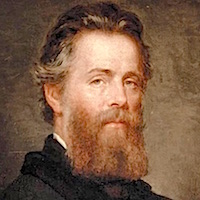
“See how elastic our prejudices grow when once love comes to bend them.”
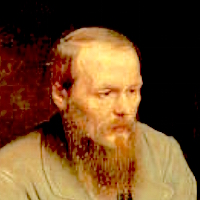
“I find to my amazement that the more I love mankind as a whole, the less I love man in particular.”

“To do good is noble. To tell others to do good is even nobler and much less trouble.”
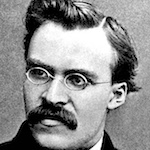
“Among helpful and charitable people, one almost regularly encounters that clumsy ruse that first doctors the person to be helped... With these fancies they dispose of the needy as of possessions... One finds them jealous if one crosses or anticipates them when they want to help.”
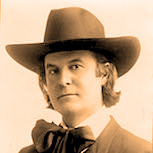
“If you lend a willing ear to someone's troubles, you make them your own. You do not lessen theirs.”

“I pray that I may never meddle, dictate, interfere, give advice that is not wanted, nor assist when my services are not needed. If I can help people, I will do it by giving them a chance to help themselves”
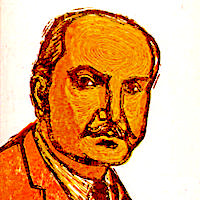
“No possible reform will make existence adorable or fundamentally just... So much tension is hysterical and degrading; nothing is ever gained by it worth half what it spoils”
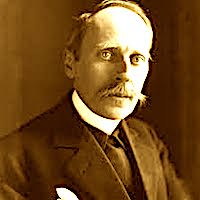
“I distrust official charity. All charity should be done by stealth.”
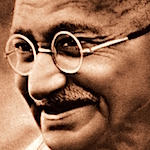
“A 'No' uttered from the deepest conviction is better than a 'Yes' merely uttered to please, or worse, to avoid trouble.”

“The most awful tyranny is the proximate Utopia where the last sins are currently being eliminated and where, tomorrow, there will be no more sins because all the sinner will have been wiped out.”

“Most of the greatest evils that man has inflicted upon man have come through people feeling quite certain about something which, in fact, was false.”

“We must, therefore, never succumb to anything at all—not even to good. A so-called good to which we succumb loses its ethical character.”

“whoever uproots his instincts uproots his strength—for with time, satiety, and discipline this dark matter may turn to spirit... if you wish to conquer temptation, there is only one way: embrace it, taste it, learn to despise it.”
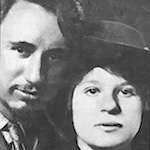
“When liberty exceeds intelligence, it begets chaos, which begets dictatorship.”
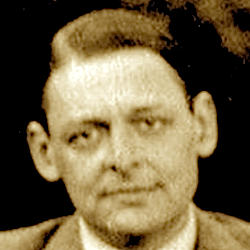
“Most of the evil in this world is done by people with good intentions.”
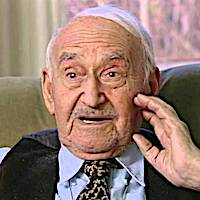
“A devotion to humanity … is too easily equated with a devotion to a Cause, and Causes, as we know, are notoriously blood-thirsty.”

“Somehow I had learned from Thoreau, who doubtless learned it from Confucius, that if a man comes to do his own good for you, then must you flee that man and save yourself.”
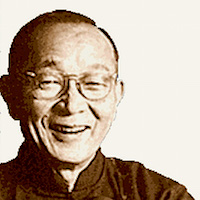
“He who talks about truth injures it; he who tries to prove it thereby maims and distorts it; he who gives it a label and a school of thought kills it; and he who declares himself a believer buries it.”
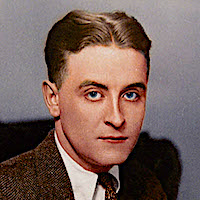
“Let me tell you about the very rich. They are different from you and me. They possess and enjoy early, and it does something to them, makes them soft, where we are hard, cynical where we are trustful, in a way that, unless you were born rich, it is very difficult to understand.”
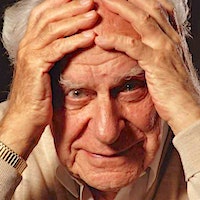
“I see now more clearly than ever before that even our greatest troubles spring from something that is as admirable and sound as it is dangerous — from our impatience to better the lot of our fellows.”
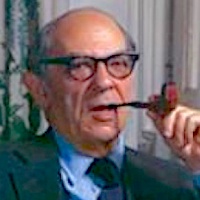
“But to manipulate men, to propel them towards goals which you — the social reformer — see, but they may not, is to deny their human essence, to treat them as objects without wills of their own, and therefore to degrade them.”

“The evil that is in the world almost always comes of ignorance, and good intentions may do as much harm as malevolence if they lack understanding.”

“philanthropists, like martyrs, missionaries, and apostles of the Good, have never been noted for their experimental spirit; they are philanthropists precisely because they know what is good and how to accomplish it... Their difficulties came, not from lack of a plan, but from too much of one... Their essential weakness was a frame of mind which stifled the spontaneous and experimental spirit which were the real spiritual wealth of America.”

“The patron saint of American philanthropy is... Benjamin Franklin, the man with a business sense and an eye on his community. For Franklin, doing good was not a private act between bountiful giver and grateful receiver it was a prudent social act.”

“There is absolutely no point in clothing the naked, feeding the hungry, and healing the sick if it is just that they may live to be naked, hungry, and sick again, or live merely to be able to do the same for others.”

“Chuang Tzu drily observed that the pursuit of the ethical Tao became illusory if one sought for others what was good for oneself without really knowing what was good for oneself.”

“‘official psychotherapy’ lacks integrity and becomes the obedient tool of armies, bureaucracies, churches, corporations, and all agencies that require individual brainwashing… the therapist who is really interested in helping the individual is forced into social criticism.”
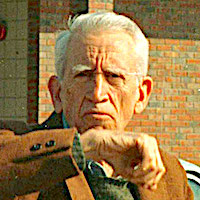
“you don't have to be a bad guy to depress somebody—you can be a good guy and do it. All you have to do to depress somebody is give than a lot of phony advice.”

“You begin saving the world by saving one person at a time; all else is grandiose romanticism or politics.”
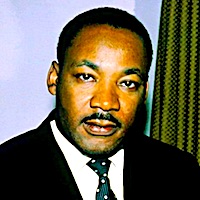
“He who passively accepts evil is as much involved in it as he who helps to perpetrate it. He who accepts evil without protesting against it is really cooperating with it.”

“To do any good at all, just believing you’re right and your motives are good isn’t enough. You have to… be in touch.”
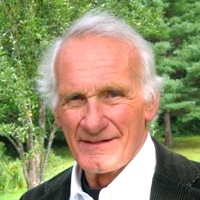
“societies develop the belief that they can eliminate thievery by guaranteeing a certain amount of property—the impulse behind much social welfare legislation. But putting a coin into the pocket of the Artful Dodger will hardly convince him that he is no longer a legitimate contender for the coin in mine.”
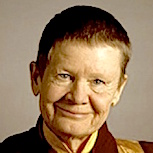
“Idiot compassion is a great expression… In some ways, it’s whats called enabling, the general tendency to give people what they want because you can’t bear to see them suffering.”

“Save the planet? We don't even know how to take care of ourselves.”
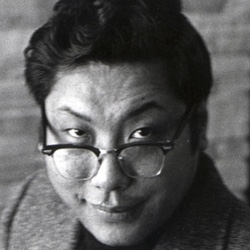
“If you go to a shop and the shopkeeper cheats you and you go back and let him cheat you again, that doesn’t seem to be a very healthy thing to do for others – only a self-indulgent way of thinking that you are creating a compassionate situation when in fact you are feeding the other person’s aggression.”

“Then there is the other kind of compassion that Mr. Gurdjieff calls idiot compassion, which is compassion with neurosis, a slimy way of trying to fulfill your desire secretly. This is your aim, but you give the appearance of being generous and impersonal.”
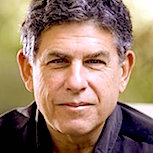
“You can’t try to change people without inflicting violence on them… Hitler and Stalin, in their own opinions, were acting for the benefit of humanity.”

“if you are deluded about your own nature, who you are, and act on the basis of that delusion, you will constantly suffer repercussions.”
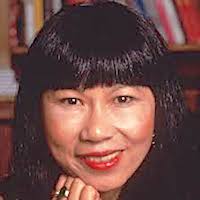
“Saving fish from drowning... saving people for their own good... killing them as an unfortunate consequence of saving them... like Vietnam, Bosnia... you can't have intentions without consequences. The question is, who pays the consequences”

“In the real world, equal respect for all cultures doesn't translate into a rich mosaic of colorful and proud peoples interacting peacefully while maintaining a delightful diversity of food and craftwork. It translates into closed pockets of oppression, ignorance, and abuse.”
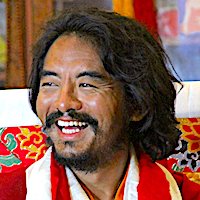
“People everywhere try so hard to make the world better. Their intentions are admirable, yet they seek to change everything but themselves.”
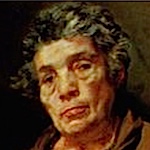





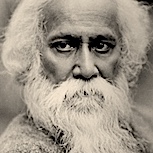
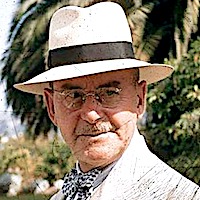
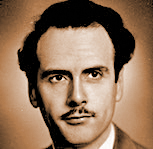

Comments (0)